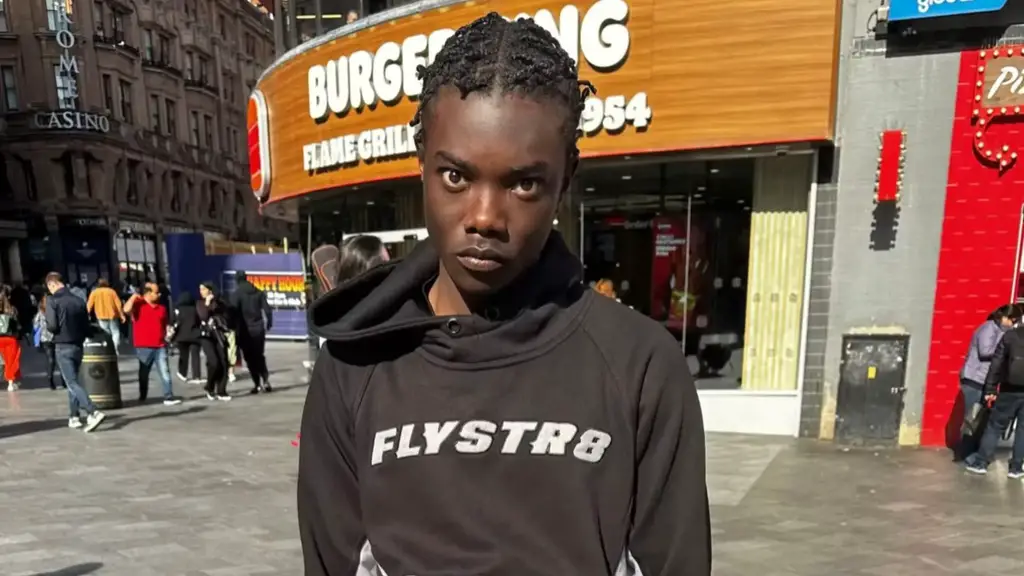24 MAY 2023 | OPINION
“Mizzy” (real name Bacari-Bronze O’Garro) has perfectly captured public outrage in recent days. He has done this by posting videos of himself creating various nuisances, which he presents as pranks.
These include the theft of a dog, entering a family home whilst the family are in via an open door, and the harassment of Orthodox Jews on the street.
[Note: most of the original videos mentioned in this article have since been removed by social media platforms.]
Up until very recently, he had broadly got away with these crimes, which is at least part of the cause of the public outrage. How could anyone be so brazen as to steal someone’s pet and post the footage for all to see?
However, the outrage is more complex than it initially appears. By any analysis, it represents a cumulative frustration at societal breakdown. There are several aspects to this.
In the first instance, O’Garro’s actions demonstrate a decline in general public order. People have long stolen animals, trespassed on private property and been openly anti-Semitic. To feel empowered to post the inculpating evidence of those crimes with such pride is a recent invention. Unsurprising, then, that people would be disappointed by such a downgrade.
Secondly, the police are nowhere to be seen in these videos. O’Garro is clearly undeterred from blatantly breaking the law and disturbing the peace. This frustration is emblematic of a wider perception from the public that the police (particularly the Met) are uninterested in preventing or solving petty crime.
What, then, is the point of having urban police forces with police on the ground? Is the average British bobby insufficiently scary to effectively deter crime?
Here, the lens of inspection turns upon ourselves. We, as respectable people with jobs, families and lives, feel debilitatingly nervous about the prospect of robust self-defence.
In one of his videos, O’Garro sees a house with an open door. It is in a nice part of town; the matriarch of the home is tending to her pleasant (if compact) front garden. One imagines it is a weekend. The door has clearly been left open so she can go in and out as she pleases, assuming no-one would be so opportunist as to invade.
O’Garro and an accomplice quickly prove this assumption wrong and make good their entry. Shortly after this, he is greeted by the patriarch of the house, who emerges from the basement to tell them to leave.
Instead of doing so, tail between legs or otherwise, O’Garro perches on the family sofa and continues to film himself. This act is a clear two finger to the sanctimony of this family’s home. After some back and forth, he leaves, but no force is ever threatened or meted out. Why?
The father/husband is too afraid to use force to defend his castle. Scared by decades-old stories of farmers defending their property and ending up in prison for it (see: Tony Martin), people such as this couple – who we assume have professional jobs – have too much to lose.
More importantly, however, they have little faith that the judicial system will serve real justice. One does not need to resort to the logics of mob rule or vigilantism to see what the just course of action in this video is.
The husband should have taken O’Garro and his friend by the scruffs of the neck and robustly transported them down the steps and off the property. No need to throw them down the stairs or produce some sort of household weapon unnecessarily, but certainly a manhandling was called for.
Whether or not it is reflective of reality, the husband – as for many of us – imagines himself in court up on criminal charges. This has all number of implications for his otherwise placid and undisturbed life. That, in itself, is unjust.
If the police are unable to prevent such a crime and there is insufficient social pressure on characters such as O’Garro not to commit them, then we are left with two (potentially compatible) choices.
One option is that we clarify the existing laws on the home setting and self-defence, such that people can act reasonably and in a restrained manner, but with the confidence that they are acting within the law.
Alternatively, we strengthen the laws on the books such that the potential criminal’s equation is changed sufficiently, but with the deterrent factor of a robust defence. Leaving the firearms debate to one side, it would be difficult to see why the home-owning couple should not be able to use pepper spray or some non-lethal equivalent on their trespasser.
What will need to change for the police to prevent crimes, so normal citizens do not have to?
“Mizzy” is a provocateur. He does what he does to try and show that one arrogant young man with an iPhone transcends a social contract more than a thousand years in the making. Perhaps what he will actually be remembered for (if at all) is catalysing the backlash against petty crime in a country that seems to be accepting managed decline.
Is “Mizzy” just a jerk, or is he in fact the knee-jerk we needed?

















